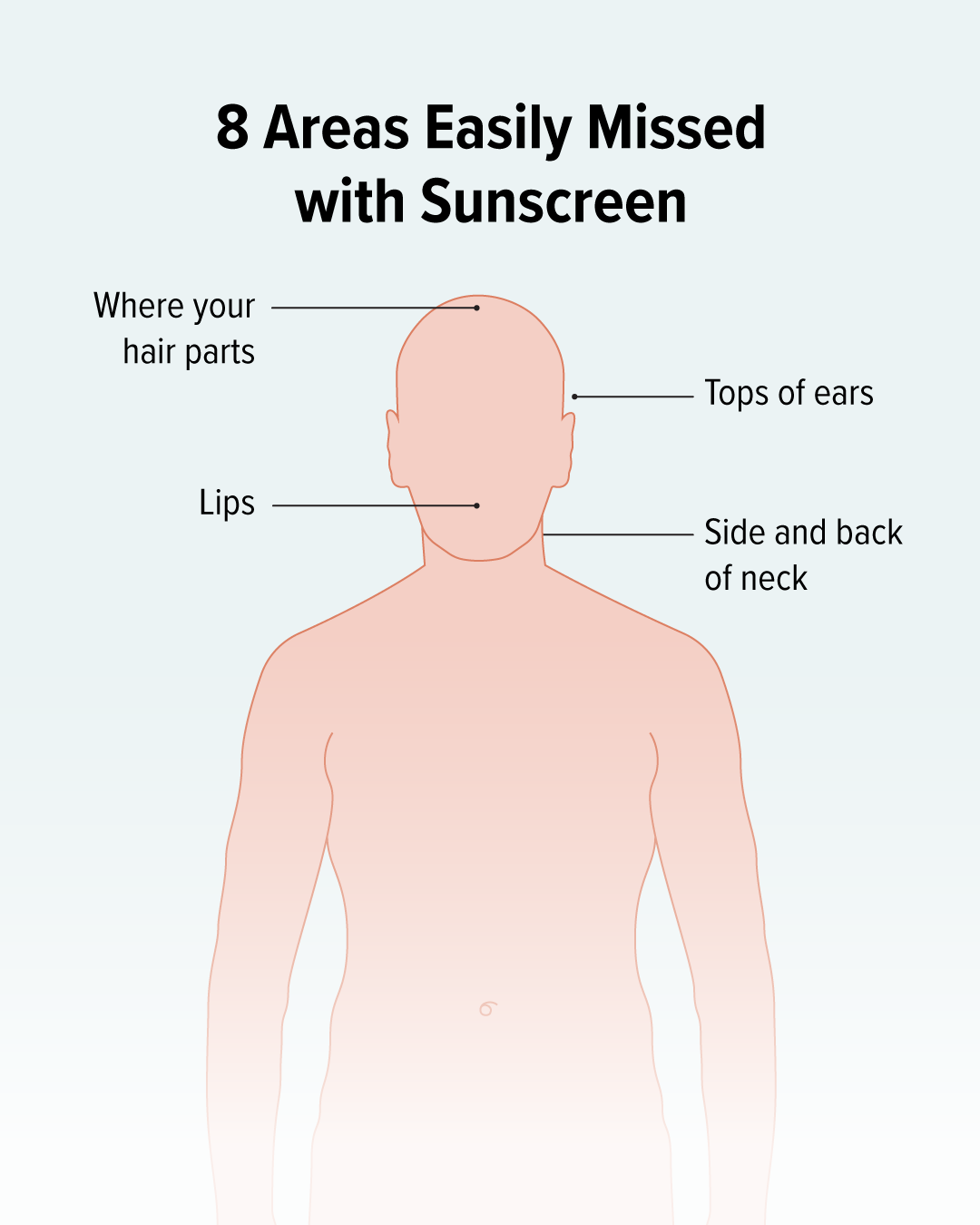Let's talk about sunscreen.
  |
͏ ͏ ͏ ͏ ͏ ͏ ͏ ͏ ͏ ͏ ͏ ͏ ͏ ͏ ͏ ͏ ͏ ͏ ͏ ͏ ͏ ͏ ͏ ͏ ͏ ͏ ͏ ͏ ͏ ͏ ͏ ͏ ͏ ͏ ͏ ͏ ͏
| | | Welcome back to your second and final day of this series. Yesterday, we discussed the risk factors and importance of early detection of melanoma. Today, we'll talk about treatment and how to protect your skin. | | Surgery is often the only treatment you'll need | | With the majority of melanomas, surgery can remove all the cancerous cells. However, your treatment options will differ depending on: | | | | | | | • | the location of the cancer | | | | | | • | the genetic makeup of the cancer cells | | | | | Wide excision is the most common surgery in the early stages of melanoma. It's a minimally invasive and often quick in-office procedure. You'll likely receive local anesthesia. Wide excision surgery can successfully treat early stages of melanoma and is often successful in treating later stages, too. | | Other surgical procedures that doctors may use are: | | | • | sentinel lymph node biopsy | | | | | | | How to lower your risk of melanoma | | People cannot completely prevent melanoma, as not all risk factors — like skin tone, age, and family history — are within their control. Factors include skin tone, age, and family history. But you can decrease your risk by following some important lifestyle habits: | | 🧴 Apply sunscreen daily, even if it's cloudy and you stay indoors. Reapply every 2 hours when you're outdoors or more frequently if you've been swimming. | | 👀 Do monthly skin checks to look for new, changing, or unusual marks. | | 👙 Avoid tanning beds and sunlamps, which can emit ultraviolet (UV) rays up to 10 to 15 times stronger than the sun. | | ⛱️ Seek shade and consider wearing UV protective clothing, a wide-brimmed hat, and sunglasses outdoors. | | 👶 Limit children's exposure to the sun, as their skin burns more easily than that of adults. | | Sunscreen is your best friend | | According to the Skin Cancer Foundation, unprotected exposure to UV rays (the sun is the primary source) is the most common cause of skin cancer. A simple proactive step? Wear sunscreen (preferably a broad-spectrum SPF of at least 30). | | Research indicates that regular and correct sunscreen use in young adulthood can reduce the risk of developing melanoma before age 40 by up to 40%. But for all of its benefits, sunscreen cannot entirely prevent the development of skin cancer. | | If sunscreen is already part of your skin care routine, go you! If not, we have included some options below to help you get started. | | | | Using sunscreen is more than just slapping it on at the start of your day. To help you out, we've created a visual guide with everything you need to know about using sunscreen effectively. Download it, print it, or screenshot it, and keep it close — perfect for the next time you head outdoors. |  | | | | Thank you for joining us on this 2-day learning adventure. We sincerely hope this has helped you take the next step in your health journey. We're here to support you if you need more help along the way. | | If you haven't already subscribed, you'll start to receive our Cancer Care newsletter in your inbox, featuring more resources to help you manage your well-being. Look for the next edition coming soon! | | We'd love to know what you thought about this miniseries. Email newsletters@healthline.com to share your feedback with us! | | | | | | | | Until next time, |  | Take care of yourself, and we'll
see you again soon! | | | | View in browser
Did a friend send you this email? Subscribe here.
To see all newsletters, click here.
Privacy | Unsubscribe
We may feature your messages to our inbox within our content. Please do not provide any personal identifiable information. Replies may be edited for length and clarity. For more, see our Privacy Policy.
Our website services, content, and products are for informational purposes only. Healthline does not provide medical advice, diagnosis, or treatment and should not be used as a substitute for medical advice from a healthcare professional. Healthline encourages you to make any treatment decisions with your healthcare professional.
Every product we recommend has gone through either Healthline's or Optum Now's vetting processes. If you buy through links on this page, we may receive a small commission or other tangible benefit. Healthline has sole editorial control over this newsletter. Potential uses for the products listed here are not health claims made by the manufacturers. Healthline and Optum Now are owned by RVO Health.
© 2025 RVO Health
1101 Red Ventures Drive
Fort Mill, SC 29707 | | | |



Nema komentara:
Objavi komentar